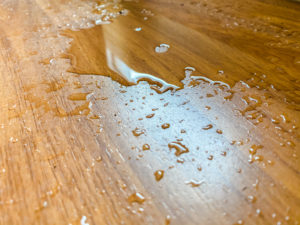Serving Charlotte, Monroe, Concord &
All Of Mecklenburg County
Menu
 If your heating, ventilation, and air conditioning (HVAC) system are not properly maintained, it could cause a lot of water damage. Some of the most popular causes of HVAC water damage include frozen evaporator coils, clogged drains, and pipelines that are often not connected properly. As a result, it is crucial to service your HVAC system at least once every year. This will help to extend the life of your system and save you money on heating and cooling. The good thing is that HVAC maintenance is rather easy. Below are a few key steps to help avoid water damage and cleanup costs to your HVAC system.
If your heating, ventilation, and air conditioning (HVAC) system are not properly maintained, it could cause a lot of water damage. Some of the most popular causes of HVAC water damage include frozen evaporator coils, clogged drains, and pipelines that are often not connected properly. As a result, it is crucial to service your HVAC system at least once every year. This will help to extend the life of your system and save you money on heating and cooling. The good thing is that HVAC maintenance is rather easy. Below are a few key steps to help avoid water damage and cleanup costs to your HVAC system.
Replacing the filter prevents the unit from overworking. This can result in the evaporator coils freezing and then defrosting, causing HVAC water damage. Depending on their nature and how often you use the HVAC system, you should replace some air filters twice per year and others one every month. To determine which type of filter you require, check the user manual. If the filters are inside the air handler or the furnace, hire an expert to change them.
The condenser is the external part of your heating system or heat pump. To function properly, it requires adequate airflow. Ensure you cleanup any dirt or any other debris that has accumulated on the condenser, at least once per year. Also, to ensure optimal airflow, keep indoor plants far from the condenser and remove any covers from it.
Inspect the condenser line opening when your air conditioner is running to ensure water flows to the drain. The quantity of water that flows is determined by the level of humidity inside your home. Make sure you clean the drainage holes in the air conditioner, located in the cabinet’s base. To keep the AC drainage clean, use a safety pin or a wire to poke through the hole and clear it. Flush your drain line with an algaecide maybe once or twice a year to keep mildew and algae at bay. Also inspect to see if the pipe is positioned properly, as the weather may have thrown it off.
Installing a condenser pump is another way to reduce HVAC water damage. This allows the flow of excess water into the right disposal drain. Also, it is a good idea to install a safety float switch that will automatically turn off the power to the Ac system, anytime condensation forms and there is a danger of water overflowing.
Regular HVAC maintenance can be challenging for plenty of homeowners. Therefore, it is a smart idea to hire professionals to help you do that job. They can evaluate and repair problems with HVAC systems. These can include the grills and registers, ductwork, air conditioning compressors, furnace flames, the thermostat, and others.
Learning how to prevent your air conditioner from leaking may not be enough to keep your system from causing water damage. Moisture from leaks encourages mold growth, which can pollute the indoor air in your house. If your property has incurred water damage or experienced any other kind of damage, Restoration 1 of Greater Charlotte is here to help. For HVAC water damage cleanup in Monroe, contact Restoration 1 today.